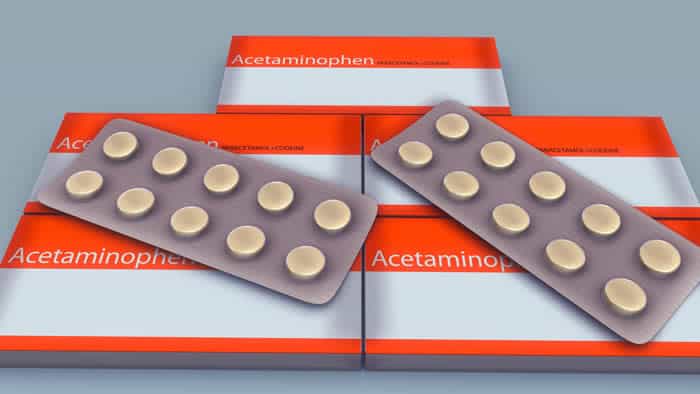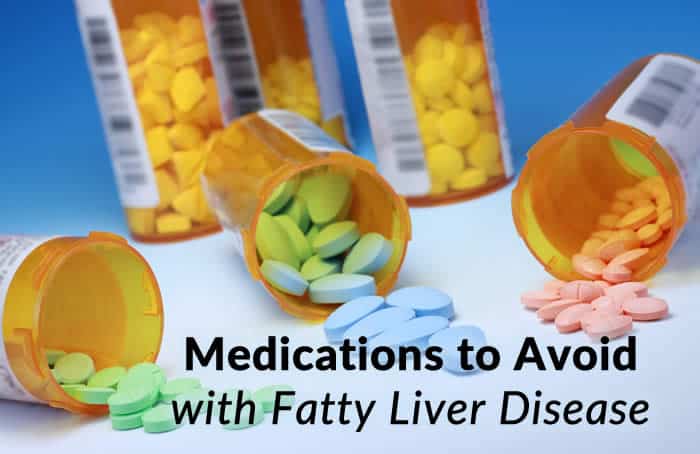
Previous
Liver Issues Caused by Scar Tissue Buildup

Next
Connecting the Dots: Skin Rashes and Fatty Liver Disease
Medications to Avoid with Fatty Liver Disease
Find out which medications to avoid with fatty liver disease. Plus, learn how you can know if a medication is safe when you have NAFLD.
While there aren’t currently any drugs approved by the U.S. Food and Drug Administration (FDA) for treating fatty liver disease specifically, some medications can be helpful by targeting certain components of this condition. For example, individuals with nonalcoholic fatty liver disease (NAFLD) are often insulin resistant, and one of the most effective drugs for this is the insulin sensitizer pioglitazone. (1) In this way, taking secondary medications can help you better manage fatty liver disease. But it’s equally important to know which medicines to avoid if you have fatty liver disease.
We’ll share some of the drugs you want to stay away from or limit and why. But first, let’s talk about what fatty liver disease is and why some medications can be more harmful if you have this condition.
What Is Fatty Liver Disease?
As its name suggests, fatty liver disease occurs when there is a buildup of fat in this internal organ. This buildup makes it harder for the liver to perform its normal functions, such as breaking down toxins in the blood, assisting with the digestion of fats, and getting rid of waste.
There are two main types of fatty liver disease: NAFLD and alcoholic fatty liver disease. NAFLD is associated with obesity, diabetes, high cholesterol, and high blood pressure while the latter can occur from heavy alcohol use and typically precedes alcoholic hepatitis and cirrhosis. (2)
Both types of fatty liver disease are fairly common. The National Institute of Diabetes and Digestive and Kidney Diseases reports that almost one in four U.S. adults have NAFLD. (3) Among heavy drinkers, more than 90% develop fatty liver, with roughly 35% developing advanced liver disease. (4)
Why Some Medications Can Be Harmful with Fatty Liver
Some medications should be avoided with fatty liver disease because they can cause even more damage to the liver. Their ingredients are known to directly cause liver harm, known as drug-induced liver injury. Sometimes this harm can occur by taking the normal dosage of the medicine. Other times, damage occurs when a drug is taken regularly over time or consumed in higher dosages.
Certain medications can also be indirectly harmful to the liver. In cases such as these, the medicine may trigger some sort of situation or response that causes liver harm, so they’re damaging to the organ but in a less direct way.
Medications to Avoid If You Have Fatty Liver Disease
Some medications are commonly associated with causing fatty liver disease. This makes them medications to avoid if you have fatty liver disease as they can increase your risk of liver injury. These medicines include: (5)
- amiodarone, a drug used to prevent and treat heart arrhythmia
- methotrexate, a drug used to reduce immune system activity in people with various forms of arthritis or various types of cancer
- tamoxifen, a selective estrogen receptor modulator used to treat breast cancer
Certain classes of medicines can also either directly cause fatty liver disease or instigate its development due to it leading to weight gain. This includes antidepressants, antipsychotics, and corticosteroids. (5)
Although they’re not prescribed by a physician, some people take herbs and other dietary supplements as a way to improve their health and wellness. Yet, some of these substances can cause liver toxicity, making them ones to avoid if you already have liver damage.
The American College of Gastroenterology shares that they include: (6)
- chaparral
- comfrey
- kava
- skullcap
- yohimbe
Medications to Limit with Fatty Liver
Other medications are safe to take when you have fatty liver disease as long as you use them as directed—which means not taking them too much or too often. The most notable is acetaminophen, which is more well-known under the brand name of Tylenol, as this can lead to liver cell death. (6)

Individuals with fatty liver disease should limit their acetaminophen usage to no more than 2,000 mg of the drug per day, if not less. (6) The one exception is if you regularly drink alcohol. In this case, you should avoid acetaminophen completely.
Also keep in mind that many cold and flu medicines contain acetaminophen. This makes it important to read all drug labels before taking them blindly. Your healthcare provider can help you determine the amount of acetaminophen you can safely take given your diagnosis and condition severity.
How Do You Know If a Medication Is Safe When You Have Fatty Liver Disease?
Too many medications exist to cover them all. Plus, more drugs are being created daily, making it incredibly difficult to provide a current, updated list.
To assist with this, there is an online search site you can use to learn more about various medicines and whether they are safe for the liver. It is called LiverTox and offered through the National Institute of Diabetes and Digestive and Kidney Diseases. Simply go to the site, find the medication that you’re curious about, and it will take you to a page that discusses what is known about its effects on the liver—whether good, bad, or indifferent.
(1) David, D., Eapen, C. (2021, March-April). What Are the Current Pharmacological Therapies for Nonalcoholic Fatty Liver Disease? Journal of Clinical and Experimental Hepatology. doi:10.1016/j.jceh.2020.09.001
(2) National Library of Medicine. (2017, April 26). Fatty Liver Disease. Retrieved September 18, 2023, from https://medlineplus.gov/fattyliverdisease.html
(3) National Institute of Diabetes and Digestive and Kidney Diseases. (2021, April). Definition & Facts of NAFLD & NASH. Retrieved September 18, 2023, from https://www.niddk.nih.gov/health-information/liver-disease/nafld-nash/definition-facts
(4) Osna, N., Donohue Jr., T., Kharbanda, K. (2017). Alcoholic Liver Disease: Pathogenesis and Current Management. Alcohol Research. PMID:28988570
(5) National Institute of Diabetes and Digestive and Kidney Diseases. (2019, May 04). Nonalcoholic Fatty Liver in LiverTox: Clinical and Research Information on Drug-Induced Liver Injury [Internet]. Retrieved September 18, 2023, from https://www.ncbi.nlm.nih.gov/books/NBK547860/
(6) American College of Gastroenterology. (n.d.). Medications and the Liver. Retrieved September 18, 2023, from https://gi.org/topics/medications-and-the-liver/






